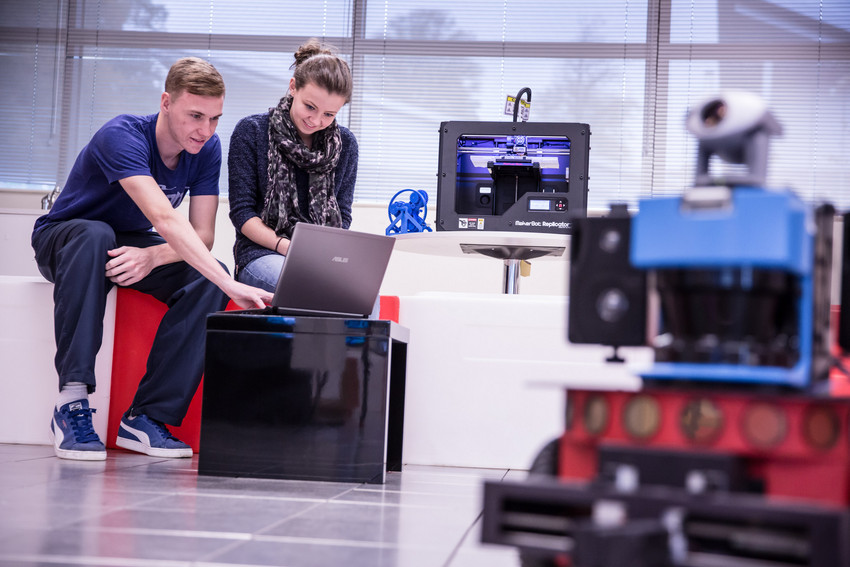This will enable graduates to embark on a professional career in computing with specific vocational skills relevant to local industry needs. The course will also help meet industry’s current shortage of high quality graduates in computing, particularly those with software development skills.
The BSc Hons in Computing Systems course recognises that software development skills need to be complemented with people and process related skills. Consequently, people, process and professional practice are important topics within modules of the course and allow the development of a broad base of skills appropriate to a software engineer.
The intent of Work Based Learning (WBL) is significantly reflected in the programme learning outcomes. During year 3 of this programme, students will have the option to undertake a placement year module, Professional Practice – Computing. This module will provide an opportunity for students to develop knowledge and expertise that can be utilised in their final year studies, and in particular their final year project.
Students will also have opportunities to gain employability skills, reflect upon the applicability of their subject-specific skills, and gain insight into the graduate job market. Students who successfully complete the module are eligible for the award of Diploma in Professional Practice (DPP) or Diploma in Professional Practice International (DPPI) for international placements. Hence, the inclusion of placement year in this programme places strong emphasis on developing industry specific practical skills so that the learners are readily employable.
You will be taught using a wide variety of teaching methods across the modules including lectures, seminars, tutorials and computer labs, totaling between 12-14 hours per week. In addition to your time in class, you will also be expected to engage in approximately 25-35 hours of self-study time per week.
You’ll be taught by experienced lecturers and academics who use their industry and research experience to demonstrate how to apply best practice in software engineering to the development of a wide range of information systems in organisations.
You will have access to Blackboard, our online learning environment, where you can access module resources and reading lists that will assist your preparation for classes and self-study.
Each module is assessed by a combination of coursework and examination, or by coursework only.
A variety of assessment methods are used across the programme, including individual and group-based practical assignments and presentations, formative and summative class tests, laboratory log books, exams and development of written reports.
Graduates from this course have been successful in gaining full Membership (MBCS) of the British Computer Society, the Chartered Institute for IT.
Upon graduation you will be eligible to embark on a professional career in computing or to undertake further study at Masters or PhD level.
























